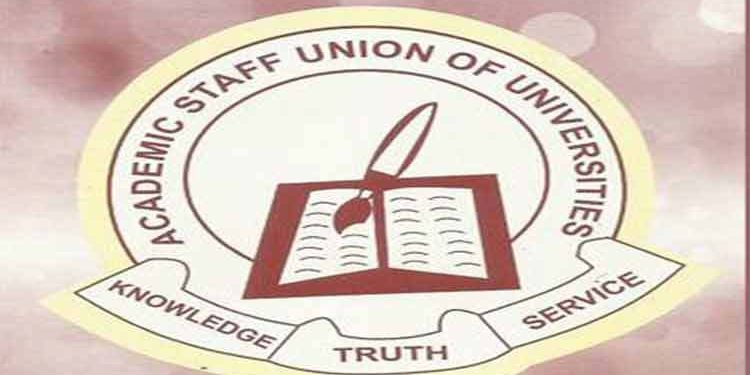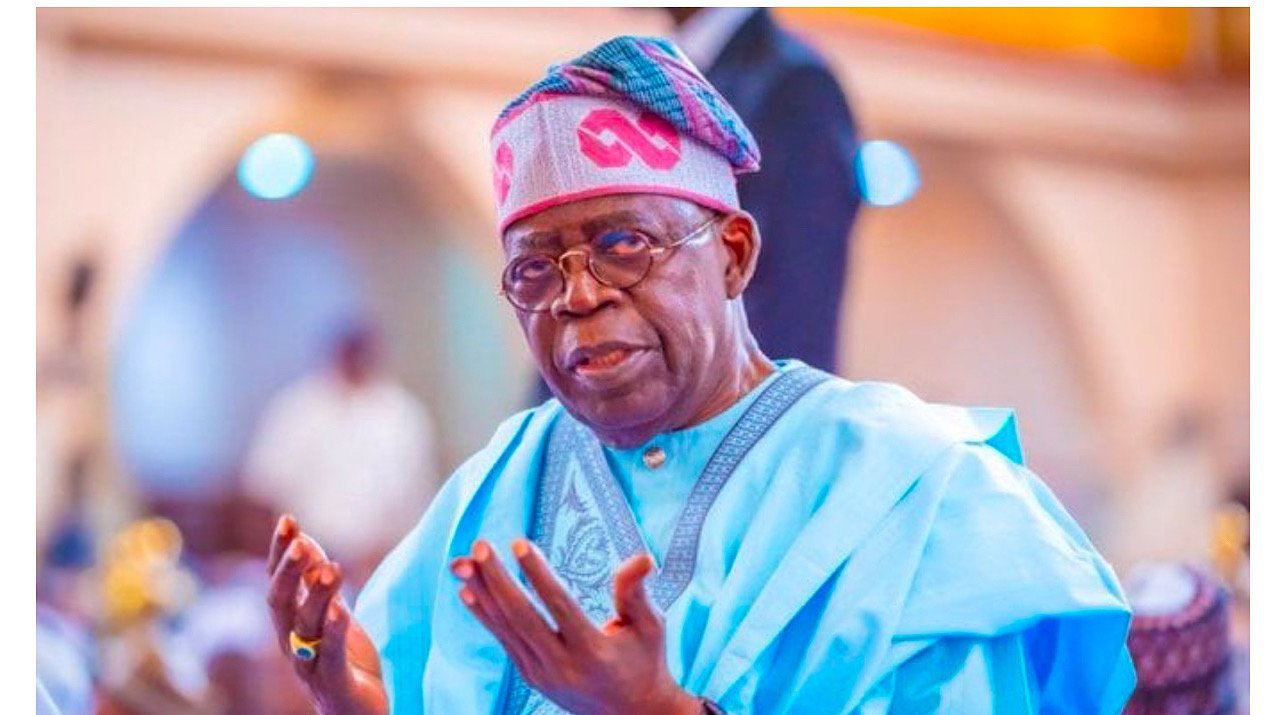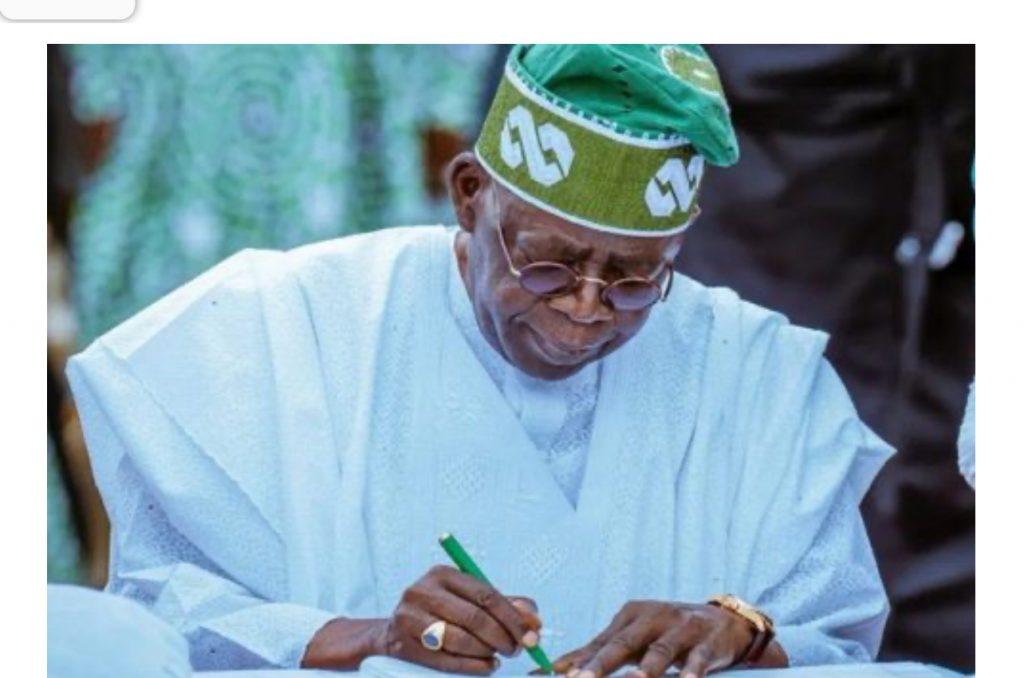news
Strike: ASUU tackles NITDA over UTAS

 …Why we oppose IPPIS
…Why we oppose IPPIS
…NITDA did a hatchet job
THE Academic Staff Union of Universities, ASUU, yesterday, berated the National Information Technology and Development Agency, NITDA, over what it described as ‘deliberate misinformation and disinformation of the public on the integrity test conducted on the University Transparency and Accountability Solution, UTAS, by the agency.
The Lagos Zonal Coordinator of the Union, Mr Adelaja Odukoya, who spoke at a press conference held at the Federal University of Agriculture, Abeokuta, FUNAAB, said the utterances of the NITDA spokespersons are capable of elongating the ongoing strike.
Odukoya said its members would not return to the class until the University Transparency and Accountability Solution, UTAS, is adopted and all their allowances paid.
His words: “We, however, wish to draw the attention of all concerned to the deliberate misinformation and disinformation of the public by the National Information Technology and Development Agency, NITDA, on the state of the Integrity Test and the adoption of UTAS by Federal Government.
“NITDA was directed to conduct Integrity Test on the UTAS platform before deployment by government. However, in a report of the first test sent to the Minister of Communication and Digital Economy, Dr Isa Pantami on December 3, 2021, NITDA indicated that the UTAS platform failed some fundamental test cases, despite a summary score of 97.4% and therefore, declined issuance of Certificate of Compliance. ASUU however, disagreed with the NITDA report and wondered how 97.4% could have amounted to failure.
“Consequent upon this disagreement, it was agreed at a meeting with the Minister of Labour and Employment that joint re-assessment tests between the technical teams of ASUU and NITDA be conducted and these were done on Tuesday, March 8, 2022. Expectedly, the assessment of all the 698 tests conducted was successful with an overall score of 99.3%. The few exceptions are five cases requiring modifications.
“However, while the re-assessment tests were ongoing, the DG, NITDA released misleading information to the public from the discredited report of the first test that UTAS failed again, leaving out the result of the jointly conducted second test of 99.3%. Our Union then wonders how and where a 99.3% test score would be adjudged as a fail.
“We are aware that the position of the NITDA DG, Inuwa Abdullahi, is not consistent with the enthusiasm of the Technical Team from the agency he superintends over and the DG is unduly politicizing the entire process to the country, possibly in the interest of the Minister for Communication and Digital Economy.
“Their dispositions amount to passing a vote of no confidence on the Nigerian intelligentsia and our union would not allow this to fly. Good enough, we are convinced that the Technical Team from NITDA, are quite abreast of the process and the responsibilities around their certified qualifications”.
“If the government allows itself to be misinformed and misdirected through the managerial incompetence of the NITDA officers, our union considers it the peak of insensitivity to the plight of the Universities, including staff, students and indeed the country.”
ASUU argued that the Integrated Personnel and Payroll Information System, IPPIS, was imposed on universities, despite its demonstrated shortcomings.
He said: “The Federal Government’s forceful migration of our members unto the platform, even when our union has demonstrated that the system does not accommodate the peculiarities of the university system should not just worry Nigerians but should equally raise the curiosity of lovers of Nigerians on the main reasons for imposing IPPIS.
“ASUU has consistently pointed out the apparent deficiencies inherent in IPPIS and the glaring superiority of our indigenously developed and home-grown UTAS as confirmed by all Government Agencies and stakeholders in the University System.”
“Our union has continually drawn the attention of Nigerians to the widely reported fraud being perpetrated by the operators of IPPIS within and outside the Accountant-General of the Federation’s Office. This monumental fraud in IPPIS was confirmed by the report of the Auditor-General of the Federation and was equally acknowledged by the National Assembly when the AGF appeared before its Public Accounts Committee.
“IPPIS is a bastion of fraud that permits the enrolment of ghost workers and constitutes a financial drain on the scarce resource of the Nigerian State.
“This development was also recently reinforced by the confession of the Head of Civil Service of the Federation, Mrs Folashade Yemi-Esan, who alarmed that over 500 names of fake workers have infiltrated the IPPIS platform.
“IPPIS, as a payment platform is yet to be subjected to any Integrity Test by the government. Our union challenged the government to similarly subject IPPIS to Integrity Test as done to UTAS by independent technical teams”.
“ASUU, therefore, wants the Nigerian public to call the DG, NITDA to order on the point of integrity not to play politics and vendetta with the future of Nigeria and that of our public Universities as National treasures and collective patrimony of all Nigerian citizens.
“We are convinced that the DG of NITDA is only out to carry out the hatchet job of a Minister whose Professorial fraud was challenged by our Union.
“After the second re-assessment tests that ended on March 18, 2022, ASUU and NITDA technical teams agreed to reconvene on Monday, March 28, 2022, to conclude on the outstanding five test cases, demonstrate the payment gateway and implementation of other recommendations on the UTAS Platform. Surprisingly, NITDA on Wednesday, March 23rd, 2022 unilaterally cancelled the scheduled meeting of Monday, March 28th 2022 which was intended to conclude the report for onward submission to the Honourable Minister of Labour and Employment.
“It has become very clear to our Union that the unilateral cancellation of the meeting of Monday, March 28th was a proof that NITDA has come to the final stop and admitted failure in all the orchestrated unpatriotic attempts to sabotage and discredit UTAS which an otherwise forward-looking government would be finding ways of deploying beyond the Nigerian public universities for which it was designed. It can, therefore, not be over-emphasized that government has run out of reasons and lies not to accept, approve and adopt UTAS.”
The Union noted that the strike would not be suspended until the government addresses the adoption of UTAS, implement the renegotiated agreement, pay all outstanding allowances and fulfil all other issues contained in the Memorandum of Action signed with our union.
news
Security Reform: Tinubu Calls for Urgent Constitutional Backing for State Police


…raises fresh alarm over terrorism, banditry at State House Iftar
…Akpabio pledges more support, vows no executive bill will die in Senate
President Bola Ahmed Tinubu on Wednesday night formally urged the Senate to begin the process of amending the 1999 Constitution to provide for the establishment of state police, declaring that Nigeria must urgently restructure its security architecture to confront terrorism, banditry and insurgency.
Speaking at an interfaith breaking of fast with the leadership and members of the Senate at the State House, Abuja, the President said the time had come for lawmakers to “start thinking” about embedding state policing in the Constitution to enable governments at subnational levels better secure their territories.
“Nigeria is extremely challenged, we are facing terrorism, banditry, insurgency, but you never failed to make a right response to these calls. What I will ask for tonight is for you to start thinking how best to amend the Constitution to incorporate the state police for us to secure our country, take over our forests from marauders, free our children from fear”, Tinubu said.
The President’s latest appeal adds momentum to a campaign he has sustained since early in his administration.
In February 2024, during an emergency meeting with the 36 state governors at the State House, Tinubu approved the creation of a joint committee of federal and state representatives to explore modalities for establishing state police, insisting that the country must “move aggressively” to improve security of lives and property.
He renewed the call in November 2025, urging the National Assembly to begin reviewing relevant laws to allow states willing to establish their own policing structures to do so.
At the APC National Caucus meeting in December 2025, he again pressed governors and lawmakers to back constitutional reforms for state police and local government autonomy.
Only days ago, at an interfaith breaking of fast with governors at the Presidential Villa, the President declared that state police “can’t wait” and “will not be postponed,” urging preparations for what he described as a necessary shift in the nation’s security architecture.
At Wednesday’s gathering with senators, Tinubu framed the proposed reform as a constitutional obligation anchored on unity and shared responsibility.
“What you have faced in the challenging period of this country, the terrorism and banditry, is causing us havoc and we should pull together, unite in a way that our forefathers contemplated to bring about a constitutional democracy and pull us together. They didn’t say we should fight,” he said.
Beyond security, the President expressed deep appreciation to lawmakers for supporting what he described as bold and necessary economic reforms.
“I have a lot of credit for bold reforms. Without your collaborations, without your inspirations, those reforms are not possible. We are reformists together,” he said.
Tinubu defended the removal of petrol subsidy and foreign exchange reforms, describing them as steps taken to halt “monumental corruption.”
“What we gave up and what we stopped is a monumental corruption in subsidy. We gave it up. We don’t want to participate in monumental corruption, in arbitrage, foreign exchange,” he stated.
‘Amend Constitution to accommodate state police’
State police and questions Nigeria can no longer avoid
Senate backs state police, technology-driven reforms to boost Nigeria’s security
According to him, the reforms have laid the foundation for economic stability.
“You don’t have to chase me for dollars. In the past, you could see what Nigeria is today. You should be proud… What we are enjoying is stable economy, prosperity beckoning on us. We just need to work hard for it,” he added.
Responding to criticisms from political opponents, the President dismissed claims that he was stifling opposition voices.
“When they accused me of killing oppositions, I didn’t have a gun… I can’t blame anybody from jumping out of a sinking ship if they did,” he said, in apparent reference to recent defections.
He described the coincidence of Ramadan and Lent as symbolic of national unity and called for continued harmony between the executive and legislature.
“We are committed to Nigerian entity succeeding. We are committed to make law for the welfare, prosperity of the country. I think we are committed together to govern together,” he said.
In his response, President of the Senate, Senator Godswill Akpabio, assured the President of the chamber’s loyalty and continued cooperation.
“We have nothing to give to you than to assure you of our loyalty,” Akpabio said. “I’m sure you have noticed that nothing you have ever sent to us died in first reading, and it will never happen.”
He said the Senate painstakingly reviews executive proposals to ensure they serve national interest, even when they initially attract criticism.
“We sit down to painstakingly go through everything that comes before us, and then at the end, we see that it is in the interest of Nigerians, even when the social media is not seeing it,” he said.
Akpabio commended Tinubu’s tax reforms, foreign exchange unification, fuel subsidy removal and the recent electoral amendment, noting that the President promptly assented to the revised Electoral Act when convinced it served national interest.
He expressed optimism that by 2031, Nigeria would be more prosperous under Tinubu’s leadership and offered prayers for peace amid what he described as “troubles and sponsored insecurity” in parts of the country.
The Senate President also thanked Tinubu for appointing former Senator Jimoh Ibrahim as an ambassador, describing it as recognition of legislative talent.
The interfaith gathering ended with prayers for unity, wisdom and strength for the nation’s leaders as they navigate security and economic challenges.
news
BREAKING: Tinubu Names Tunji Disu Acting Inspector General After Egbetokun’s Exit


President Bola Tinubu has accepted the resignation of the Inspector-General of Police, Kayode Egbetokun, and approved the appointment of Tunji Disu as Acting Inspector-General of Police with immediate effect.
Our correspondent had earlier reported that Egbetokun tendered his resignation letter on Tuesday, citing pressing family considerations.
Appointed in June 2023, Egbetokun was serving a four-year term scheduled to conclude in June 2027, in line with the amended provisions of the Police Act.
In a statement issued on Tuesday by his Special Adviser on Information and Strategy, Bayo Onanuga, the President received the letter earlier on Tuesday and expressed appreciation for his service to the nation.
He also commended Egbetokun’s “decades of distinguished service to the Nigeria Police Force and the nation,” acknowledging his “dedication, professionalism, and steadfast commitment to strengthening internal security architecture during his tenure.”
“In view of the current security challenges confronting the nation, and acting in accordance with extant laws and legal guidance, President Tinubu has approved the appointment of Assistant Inspector-General of Police Tunji Disu to serve as Acting Inspector-General of Police with immediate effect.
“The President is confident that AIG Disu’s experience, operational depth, and demonstrated leadership capacity will provide steady and focused direction for the Nigeria Police Force during this critical period,” the statement read.
It added that in compliance with the provisions of the Police Act 2020, the President will soon convene a meeting of the Nigeria Police Council to formally consider Disu’s appointment as substantive Inspector-General of Police, after which his name will be forwarded to the Senate for confirmation.
The President reaffirmed his administration’s commitment to enhancing national security, strengthening institutional capacity, and ensuring that the Nigeria Police Force remains professional, accountable, and fully equipped to discharge its constitutional responsibilities.
news
Breaking : Nigeria Gets New Electoral Act as Tinubu Signs 2026 Reform Bill


President Bola Tinubu has signed the Electoral Act 2026 (Amendment) into law, days after the Independent National Electoral Commission (INEC) released the timetable for the 2027 general elections.
The signing ceremony took place at the State House, Abuja, at about 5:00pm on Wednesday, with principal officers of the National Assembly in attendance.
The National Assembly had on Tuesday passed the Electoral Act 2026 (Amendment) Bill.
The latest amendment comes amid intense public debate over the electronic transmission of election results in real time.
Last week, protests erupted at the National Assembly complex as civil society organisations and opposition figures mounted pressure on lawmakers to mandate live transmission of results from polling units directly to INEC’s central server.
The protesters argued that real-time transmission would reduce result manipulation and strengthen public confidence in the electoral process.
However, the ruling All Progressives Congress (APC) and some stakeholders have raised concerns about the technical feasibility of live transmission, particularly in communities with weak telecommunications infrastructure. They have argued for a phased or hybrid approach that would allow manual collation where electronic systems fail.
-

 news5 years ago
news5 years agoUPDATE: #ENDSARS: CCTV footage of Lekki shootings intact – Says Sanwo – Olu
-

 lifestyle6 years ago
lifestyle6 years agoFormer Miss World: Mixed reactions trail Agbani Darego’s looks
-

 health5 years ago
health5 years agoChairman Agege LG, Ganiyu Egunjobi Receives Covid-19 Vaccines
-

 lifestyle4 years ago
lifestyle4 years agoObateru: Celebrating a Quintessential PR Man at 60
-

 health6 years ago
health6 years agoUPDATE : Nigeria Records 790 new cases of COVID-19
-

 health6 years ago
health6 years agoBREAKING: Nigeria confirms 663 new cases of COVID-19
-

 entertainment1 year ago
entertainment1 year agoAshny Set for Valentine Special and new Album ‘ Femme Fatale’
-

 news9 months ago
news9 months agoBREAKING: Tinubu swears in new NNPCL Board


